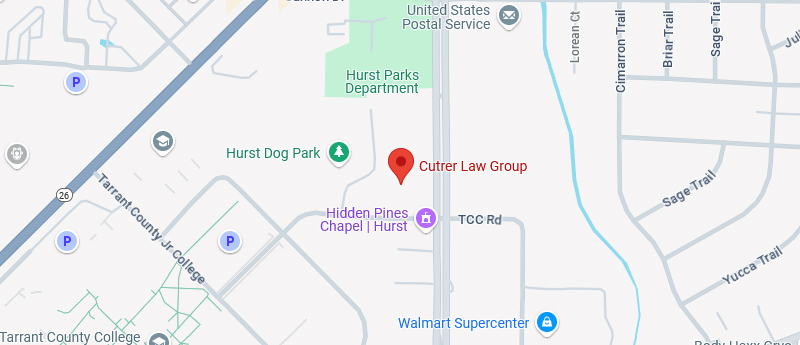What is Guardianship?
Guardianship is the legal decision to grant responsibility for a person or ward to another individual so that the guardian can protect and look after the ward. A court must determine that the adult ward is incapacitated, which is a legal term describing an inability to manage certain areas of their life. Guardianships are designed to enable the individual to build and keep as much independence as possible.
What are the Types of Guardianship?
There are several types of guardianships, each addressing specific requirements of day-to-day life. Guardianship for an individual involves help making decisions regarding living arrangements, healthcare, and other personal matters. Guardianship or conservatorship of an estate relates to the financial and legal matters of the ward. Below, we will discuss each type in greater detail.
- Guardian of a person: A guardian will assume the responsibility of overseeing the well-being of the individual, ensuring that the ward receives adequate care, supervision, and accommodation. The guardian will make medical decisions, vocational planning, and education considerations but is not required to live with the ward or use personal funds for care.
- Guardian of the estate: A guardian of the estate becomes necessary when the ward is unable to manage individual finances and has revenue beyond benefit income. This person will assume responsibility for managing finances on behalf of the individual and must submit an annual accounting detailing the status of their assets to the court.
- Limited guardianship: This guardianship is limited to specific decision-making areas, such as medical treatment, and allows the ward to make other decisions without supervision. The focus of this option is to be less restrictive for special needs individuals.
- Temporary guardianship: Temporary guardianship typically lasts up to 90 days and is often granted during urgent situations that require immediate decisions. States commonly require a permanent guardianship request to be filed at the same time a temporary guardian is appointed.
- Successor guardian: Parents of a special needs child can legally designate an individual to assume guardianship at the time of the parent’s death or inability to care for the child.
What Does Guardianship Look Like for a Special Needs Adult?
The probate court oversees the legal process of guardianship. It is used to protect a vulnerable or incapacitated adult from neglect, abuse, exploitation, or other challenges that may occur if they were to make important life decisions on their own.
Procuring guardianship will:
- Take away the legal rights of a special needs adult and
- Bestow those legal rights upon another adult
A person is considered legally incapacitated if a medical or mental health issue inhibits their ability to:
- Provide for their own basic needs, such as shelter, food, clothing, etc, or
- Care for their own financial or physical well-being
Legally speaking, incapacitation and disability are separate, independent conditions. While incapacitation may be due to a disability, a disability does not guarantee incapacitation.
What is the Difference Between Power of Attorney and Guardianship?
While both powers of attorney and guardianships manage individuals’ affairs, they work in different ways and have unique implications.
A power of attorney allows an individual to appoint a person to make decisions on their behalf. This is accomplished through a legal document that enables the appointer to specify the decisions that the agent may make based on personal needs and circumstances. The appointer retains the ability to make decisions as long as they are able and is a preferred option for individuals who anticipate incapacitation in the future but are currently able to care for themselves.
A guardianship involves a court-appointed guardian taking responsibility for another person’s personal, financial, or other decisions. Guardianship offers comprehensive oversight for individuals in need, while a power of attorney aims to be less intrusive to allow for greater control over one’s own life.
What are the Alternatives to a Special Needs Guardianship?
Guardianship of an adult with special needs is often a last resort, intended to allow the individual to maintain as much autonomy as possible. There are several alternatives to guardianships that can be combined to accommodate each unique situation. Alternatives include:
- Creating a special needs trust
- Appointing a durable power of attorney
- Appointing a financial representative
- Hiring assisted living services
- Supported decision-making agreements
- Directives to physicians
- The “Representative Payee” program from the Social Security Administration
What is the Guardianship Process in Texas?
To establish legal guardianship for special needs adults, the following steps should be taken:
- Petition for guardianship: An interested party will file a petition with the probate court that outlines the ward’s incapacity and need for guardianship.
- Capacity evaluation: A court-appointed professional will assess the ward’s cognitive and functional abilities and limitations.
- Notice to interested parties: The court will notify the ward and other interested parties about the petition for guardianship.
- Hearing: A judge will conduct a hearing to consider evidence and arguments from all involved parties.
- Guardianship order: If guardianship is necessary, a judge will issue an order that outlines the specific powers of the guardian.
A judge will also consider the implications and considerations associated with guardianship with ongoing checks and balances for the ward’s welfare, including:
- The least restrictive alternative: Texas law encourages the consideration of the least restrictive alternative, which means that the court will explore all other options before resorting to guardianship.
- Ongoing review: The court will periodically review guardianship to ensure its continued need and assess any changes in the ward’s condition so that it may be lifted.
- Respecting the rights of the ward: Guardians should always try to involve the ward and honor their wishes, when possible, in respect of their autonomy and dignity.
Do I Need an Attorney?
If you are considering guardianship for a loved one in your life, you need an attorney who will take the time to listen and understand your unique situation. Call Cutrer Law Group today at 817-854-1651 or fill out a contact form for a free consultation.





 1845 Precinct Line Road
1845 Precinct Line Road info@akcfamilylaw.com
info@akcfamilylaw.com 817-854-1651
817-854-1651



